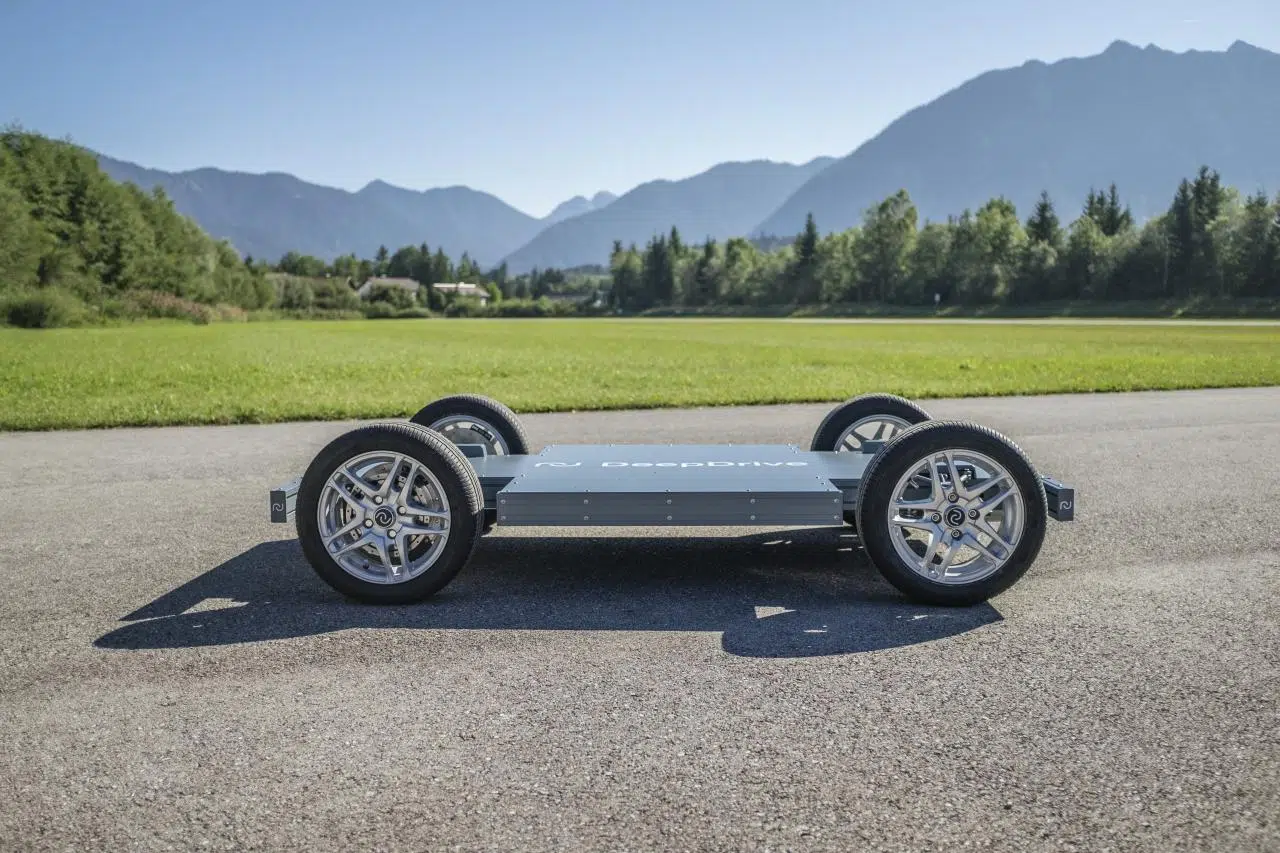DeepDrive: How to revolutionise the drive of e-vehicles
With its own electric wheel hub motors, DeepDrive is aiming to significantly advance a revolutionary drive technology for electric vehicles.
From 2024 in the field of micro-mobility, and then from 2026 onwards also in e-vehicles in large-scale production. For the Elektroauto-News.net podcast, I talked to co-founder and powertrain system engineer Alexander Rosen about the relatively young company and found out whether they build on visions or hard facts.
In itself, both are true of the Munich-based start-up. But they believe in the facts. Not only in-house, but seven major car manufacturers are also interested in DeepDrive's e-wheel hub motors. If the Munich-based company has its way, these motors will solve the two biggest problems of electric vehicles in one fell swoop: range and costs. The gearless motor is more efficient than that of conventional electric vehicles, the founders are quoted as saying. The range can be increased by up to 20 percent - also because the chassis is more than 100 kilos lighter than with conventional drives.
The core innovation is a revolutionary electric motor (including power electronics) that is ultra-efficient and has an extremely high torque density. This system is so compact that it could even be integrated into the wheels instead of a central position. Which brings us to wheel hub motors. Alexander showed us that with a consumption of 15-20 kWh/100 km, about 3-4 kWh/100 km are lost in the e-drive alone. A value that could be significantly reduced.
Thus, even with the theoretical replacement of the e-drive of today's vehicles with the drive of DeepDrive, a range gain of 15 to 20 percent could be achieved. With regard to the costs for the specially developed drive, the company wants to be fully competitive. In return, however, they want to trump with more efficiency and more space. Space that could be used for more battery cells or simply used differently in the design of the e-vehicle.
The company is also further developing its own platform with the wheel hub motors in order to offer other companies the opportunity to build their own electric cars on it. DeepDrive concentrates on the entire drive system, while the car manufacturers concentrate on everything else. Alexander is better at communicating this in detail. That's why I'm going straight into the podcast episode.
You are also welcome to send me questions about e-mobility that concern you in your everyday life. The answers could also be of interest to other listeners of the podcast. As always, I am of course happy to receive criticism, comments and the like. So feel free to get in touch, also for the already mentioned topic suggestions. And of course I'm also very happy about a positive rating from the podcast provider of your choice! Thank you.
